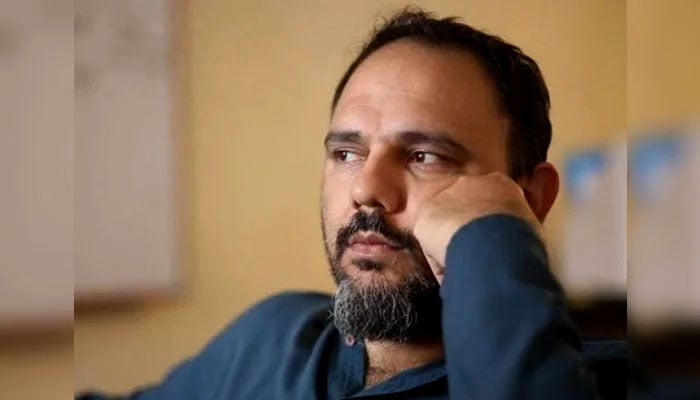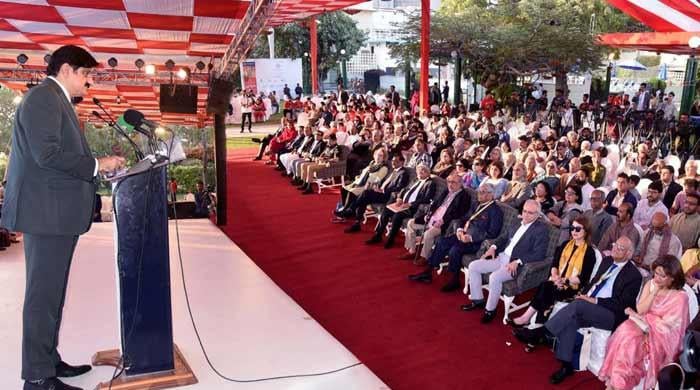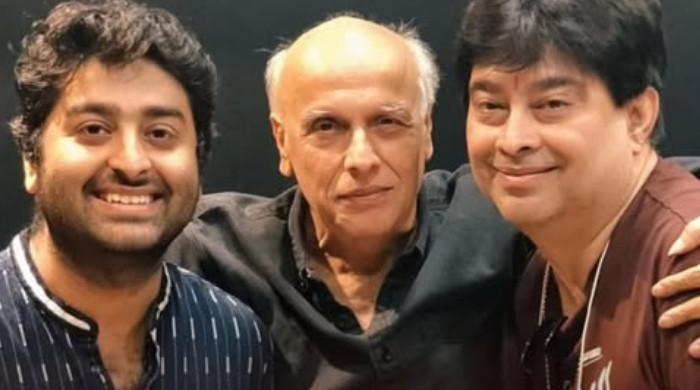Filmmaker Jami granted bail in defamation case
Film director challenged his conviction before SHC in defamation case involving fellow director Sohail Javed
July 10, 2025

- Court orders to submit surety bonds worth Rs50,000.
- Filmmaker likely to be released today.
- Terms allegations as "false and baseless".
The Sindh High Court (SHC) on Thursday granted bail to filmmaker Jamshed Mehmood Raza, famously known as Jami, in a defamation case involving fellow director Sohail Javed.
SHC approved the bail plea against surety bonds worth Rs50,000 and ordered the authorities to release Jamshed Mehmood.
A session court in Karachi had sentenced Jami to two years in prison on charges of defaming fellow director Sohail Javed. Additional Sessions Judge (South) Syed Waqar Hyder also imposed a fine of Rs10,000 on the convict.
Jami challenged his conviction before the SHC in the defamation case on Wednesday.
In his petition, the film director argued that the charges for which he was convicted are bailable offences and that the trial court did not fulfil the required legal procedures before announcing the verdict.
He maintained that the allegations against him are "false and baseless".
The petitioner urged the SHC to set aside his conviction and declare the lower court’s order null and void.
In 2019, Javed filed a private complaint against Jami, a celebrated music video and film director and producer, for disseminating defamatory content, The News reported.
The complainant claimed that the accused published a letter authored by an anonymous girl recounting an incident of sexual assault on his Facebook page, Jami Moor, on February 14, 2019.
On February 18, 2019, the complainant said he served a legal notice to the accused, demanding an unconditional public apology and immediate removal of the publication, but the notice was ignored by the accused who further disseminated the publication.
In his statement under the Section 342 of the Code of Criminal Procedure before a court, Jami denied all the allegations against him. He claimed that he had read a letter that was given by the organisers of the Lahooti Melo, and that he had no knowledge of what was in that letter at that time.
He said he had posted a video on Facebook, on which viewers mentioned the name of the complainant. Thereafter, he added that he deleted the post as well as his Facebook account.
He said that he was an activist, director and producer, however, the complainant had given a false statement against him on oath, adding that he had no intention of defaming the complainant or any other person.
In his written order, the judge noted: "In conclusion, it stands proved that the accused, with knowledge and recklessness, defamed the complainant by means of public communication, thereby harming his reputation."
"The publication of the letter, which was shared more than 200 times on available record, and the subsequent commentaries of the accused, and the accused's failure to deny or disassociate himself from the defamatory content, all combine to constitute the offense of defamation under Section 500 PPC."
The judge observed, "the accused has neither presented any credible evidence substantiating the allegations in the letter nor has he shown that his publication served a lawful public purpose. The victim of the alleged incident was not produced, no complaint was filed with relevant legal authorities; and no protective mechanism for the victim was invoked. This failure indicates that the act of publication was not in furtherance of any lawful or public interest but was rather, reckless and malicious."











